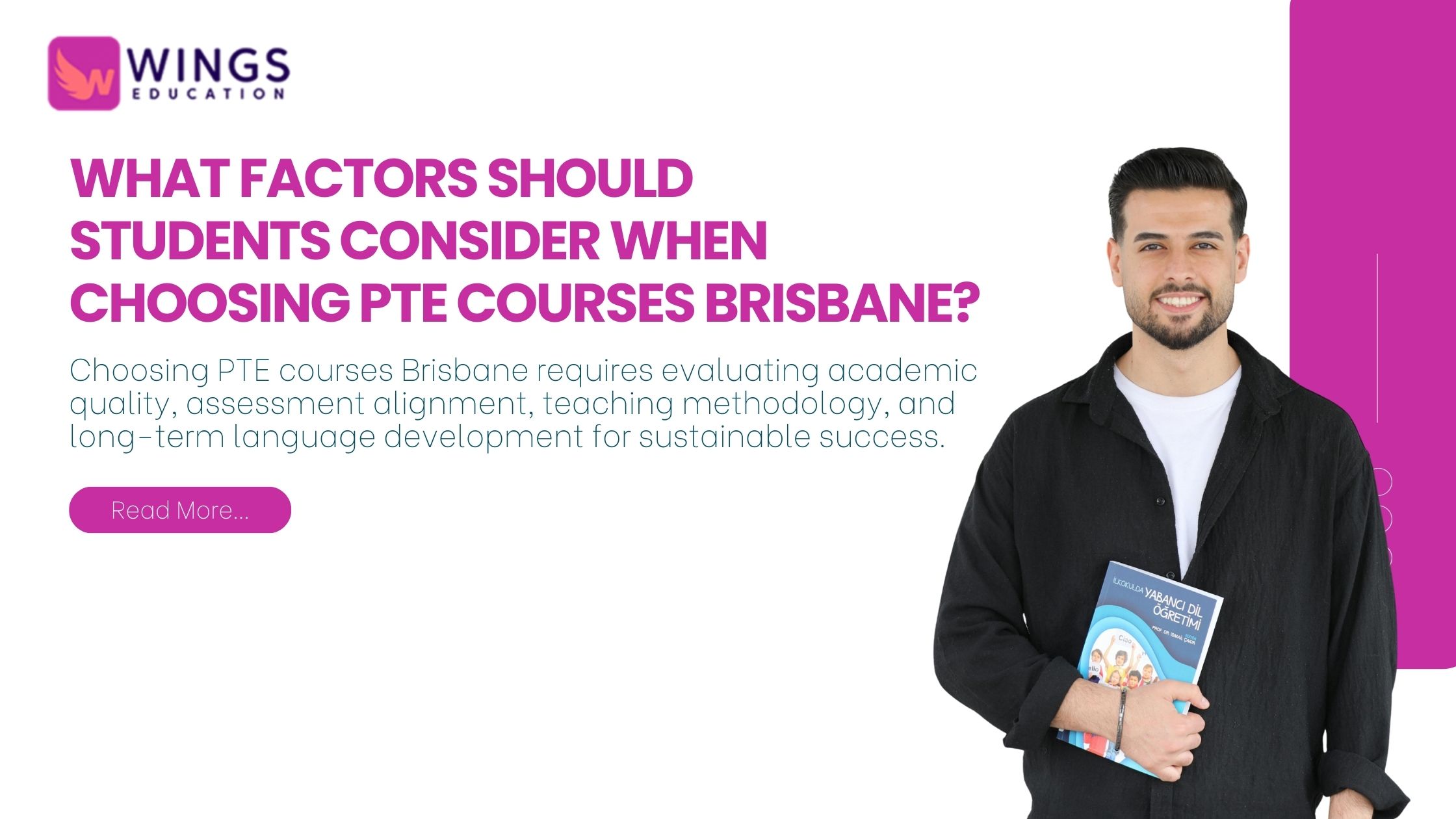
Cracking the AHPRA English Language Test: A Complete Guide for Aspiring Healthcare Professionals
Learn how to ace the AHPRA English Language Test with expert tips, test formats, and preparation strategies to secure your healthcare career in Australia.
For healthcare professionals seeking registration in Australia, meeting the English language proficiency requirement is an essential step. The Australian Health Practitioner Regulation Agency (AHPRA) ensures that all healthcare workers possess the necessary English communication skills to provide safe and effective care. This requirement is particularly important for professionals who have completed their education in a non-English-speaking country.
AHPRA recognizes several English proficiency tests, including the IELTS Academic and the Occupational English Test (OET). Candidates taking the IELTS Academic must achieve an overall score of 7.0, with no individual band lower than 7.0. Similarly, those opting for the OET need to secure a minimum grade of B in all four components: listening, reading, writing, and speaking. These standards ensure that healthcare professionals can effectively interact with patients, colleagues, and other stakeholders in a medical setting.
Preparing for these tests can be challenging, especially for non-native English speakers. Candidates should focus on improving their language skills through structured study plans, practice tests, and professional coaching if necessary. Many applicants struggle with writing and speaking sections, as they require both accuracy and fluency in medical communication. By dedicating time to preparation and understanding the test format, healthcare professionals can successfully meet AHPRA’s language requirements and move forward in their careers in Australia.
Why is the AHPRA English Language Test Required?
Australia is home to a diverse population, with people from various cultural and linguistic backgrounds seeking medical care. In such an environment, clear and effective communication is essential in the healthcare sector. Miscommunication in a medical setting can lead to serious consequences, including errors in diagnosis, incorrect treatment, and compromised patient safety. To ensure high standards of care, the Australian Health Practitioner Regulation Agency (AHPRA) requires international healthcare professionals to demonstrate their English language proficiency before obtaining registration.
The AHPRA English Language Test is designed to assess whether healthcare workers can communicate fluently and accurately in a professional setting. International professionals must prove their ability to listen, read, write, and speak English at a level necessary for safe and effective patient interactions. The test ensures that they can understand medical terminology, follow instructions, document patient information correctly, and convey critical details with clarity.
For many candidates, preparing for this test can be challenging, particularly in the writing and speaking sections. Achieving the required scores demands a solid grasp of medical language, strong grammatical skills, and confidence in professional communication. With dedicated preparation, study resources, and practice, healthcare professionals can successfully meet AHPRA’s language requirements and take the next step in their careers in Australia.
The AHPRA English Language Test Is Required for Whom?
If you are an internationally qualified healthcare professional seeking registration in Australia, you must meet AHPRA’s English language standards. This requirement applies to various professions, including:
- Nurses and midwives
- Doctors and specialists
- Dentists and dental hygienists
- Physiotherapists
- Occupational therapists
- Pharmacists
- Podiatrists
- Radiographers
Native English speakers from countries such as the UK, the USA, Canada, Ireland, and New Zealand may be exempt, provided they have completed their primary education and tertiary qualifications in English.
Accepted Tests for AHPRA English Language Proficiency
AHPRA recognizes multiple English language tests for proving proficiency. Candidates can choose from the following internationally recognized exams:
1. International English Language Testing System (IELTS)
- An academic module is required.
- Minimum score: 7.0 in each band (Listening, Reading, Writing, and Speaking)
- Scores are valid for two years.
2. Occupational English Test (OET)
- Designed for healthcare professionals.
- Minimum grade: B in each sub-test (Listening, Reading, Writing, and Speaking)
- Scores are valid for two years.
3. Pearson Test of English (PTE) Academic
- Minimum score: 65 in each of the four sections
- Scores are valid for two years.
4. The TOEFL iBT is an assessment of English as a foreign language. Minimum scores:
-
- Listening: 24
- Reading: 24
- Writing: 27
- Speaking: 23
- Scores are valid for two years.
Candidates can achieve the required score in a single test sitting or across multiple sittings within six months, provided they meet specific conditions set by AHPRA.
How Can the AHPRA English Language Test Be Prepared for?
1. Understand the Test Format
Each English language test has a unique format, and understanding its structure, question types, and timing can greatly enhance a candidate’s performance. The IELTS test comprises four sections: Listening, Reading, Writing, and Speaking, each designed to evaluate different aspects of language proficiency. The OET, on the other hand, is specifically tailored for healthcare professionals, assessing their ability to communicate effectively in medical scenarios. PTE Academic is a fully computer-based test that uses AI-driven evaluation to measure language skills. Similarly, TOEFL iBT is also computer-based and focuses on integrated language skills, requiring candidates to combine reading, listening, speaking, and writing abilities to succeed.
2. Practice Regularly
Consistent practice plays a crucial role in achieving success in the AHPRA English Language Test. One of the most effective ways to prepare is by taking full-length mock tests to assess your current proficiency and identify areas for improvement. Exposure to English in various formats, such as listening to podcasts, watching medical dramas, and reading healthcare-related articles, can help enhance comprehension skills. Writing regularly, especially summarizing patient cases or medical reports, improves clarity and accuracy. Engaging in conversations with English-speaking groups or practicing with colleagues can also boost confidence in spoken communication, making interactions in a professional healthcare setting more effective.
3. Improve Your Time Management Skills
Time management is a crucial factor in successfully completing the AHPRA English Language Test, particularly in the Reading and Writing sections. Practicing under timed conditions helps candidates get accustomed to the pace required for each task. In the Reading section, mastering skimming and scanning techniques allows for quick identification of key information without wasting valuable time. In the Writing section, planning an essay before starting ensures that ideas are structured logically, reducing the risk of going off-topic. Developing these strategies not only improves efficiency but also enhances accuracy, enabling candidates to perform confidently within the given time limits.
4. Focus on Medical Terminology (for OET Candidates)
Since the OET is specifically designed for healthcare professionals, incorporating medical vocabulary into daily practice can significantly improve test performance. Reviewing common medical conditions and their descriptions helps candidates become familiar with terminology they will encounter in reading and listening tasks. Understanding patient interaction phrases, such as how to explain diagnoses, provides reassurance, or gives instructions, is essential for both the speaking and writing sections. Additionally, practicing ethical and professional communication ensures that candidates can respond appropriately in real-life healthcare scenarios. Developing a strong command of medical language enhances clarity, making interactions with patients and colleagues more effective and professional.
Common Challenges and How to Overcome Them
1. Speaking Anxiety
Many candidates find the speaking section challenging due to nervousness and a lack of confidence. One effective way to overcome this is by recording yourself while practicing and evaluating your fluency, pronunciation, and clarity. Listening to these recordings helps identify areas that need improvement. Practicing with a tutor or study partner can also build confidence, as it simulates real test conditions and allows for constructive feedback. Additionally, familiarizing yourself with common speaking topics, especially those related to healthcare scenarios, ensures that you can respond naturally and effectively. Regular practice and exposure to different speaking situations can significantly enhance performance.
2. Writing Task Complexity
Writing tasks can be particularly difficult for candidates who are not accustomed to formal writing, especially in a professional or medical context. A structured approach, including a well-defined introduction, body, and conclusion, ensures clarity and logical flow. Using clear and concise language is essential, as overly complex sentences can lead to confusion and grammatical errors. Reviewing sample essays helps candidates understand the expected format, tone, and style. Practicing by rewriting these samples in their own words allows for improvement in organization and coherence. Consistent practice, along with careful proofreading, can significantly enhance writing skills and overall performance in the exam.
3. Difficulty in Understanding Accents
Listening comprehension can be challenging, especially when dealing with different English accents. Since English proficiency tests often include speakers from various regions, it is essential to expose yourself to diverse accents through resources like YouTube videos, TED Talks, and audiobooks. Regular exposure to British, Australian, American, and other accents helps train your ear to recognize different pronunciations and speech patterns. Taking practice tests under exam conditions allows you to adapt to real test scenarios and improve your ability to understand spoken English quickly. Actively listening and noting unfamiliar words or phrases can further enhance comprehension and boost confidence in the exam.
What Happens If You Fail the AHPRA English Language Test?
Failing to achieve the required score can be discouraging, but it is an opportunity for improvement rather than the end of the journey. The first step is to carefully analyze the score report to identify specific weak areas, whether it is reading comprehension, writing structure, speaking fluency, or listening accuracy. Understanding these weaknesses allows for focused preparation. Retaking the test is always an option, and candidates can attempt it as many times as necessary to meet AHPRA’s requirements. Seeking additional training, such as enrolling in an English language coaching program, can provide expert guidance and personalized strategies to enhance performance in future attempts.
Final Thoughts
For medical professionals looking to register in Australia, passing the AHPRA English Language Test is an essential first step. Since effective communication is fundamental in the medical field, proving language proficiency ensures that professionals can provide safe and high-quality care. While the test may seem overwhelming, success is achievable with the right preparation, strategic study methods, and consistent practice.
Choosing the most suitable test based on individual strengths plays a key role in performance. Some candidates may find IELTS or TOEFL iBT more comfortable due to their general academic approach, while others may prefer OET because of its healthcare-specific content. Understanding the test format, question types, and scoring criteria helps build confidence and allows candidates to focus on areas that need improvement.
Addressing common challenges, such as time management, writing structure, and listening to different accents, can significantly improve test scores. Regular practice through mock tests, exposure to medical vocabulary, and refining speaking skills through role-playing scenarios are effective strategies for success.
By investing time in preparation and utilizing the right resources, candidates can approach the exam with confidence. Clearing the AHPRA English Language Test opens doors to rewarding career opportunities in Australia’s healthcare sector, bringing professionals one step closer to their goals.























